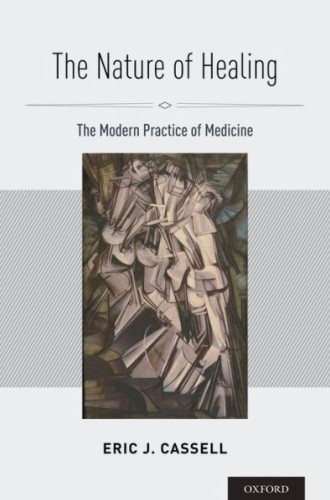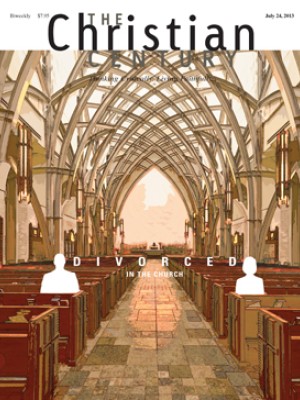The Nature of Healing, by Eric J. Cassell
I met “Ben” while working as a hospice chaplain in a small North Carolina town. The window next to his hospital bed looked out on what had once been a tobacco field. A tube was draining liquid from his stomach. He had resisted having the tube inserted for months, but eventually trips to the hospital 60 miles from his home became too difficult, so he consented to it so he could stay home.
Our conversations ranged over his work as a farmer and miner, his memories of his late wife, his travels to Florida and his trust in Jesus. As the months wore on, he lamented his inability to get to the pond on his farm to fish. We wracked our brains for a way to get his wheelchair down to the pond, but the path was too rocky and he was too weak to hold a pole. Unafraid of dying and certain in his faith, he lamented his inability to fish: it was for him the sign of his illness.
Read our latest issue or browse back issues.
Debates over health-care reform in the United States often turn to issues of insurance company profits, new doctors’ debt load, the high costs of care and the benefits and excesses of technology. Absent from these discussions are reflection on the more particular, intimate and personal details of healing the individuals who come to medical providers for care.
Since publishing his now classic The Nature of Suffering and the Goals of Medicine, Eric Cassell has been one of medicine’s foremost thinkers about suffering. In The Nature of Healing he reminds us that people experience sickness in profoundly individual ways, and he argues for ways of understanding illness and practicing medicine that allow physicians to heal patients even when they cannot cure their diseases. Cassell explains that illnesses alter the ways individuals encounter the world, that they prevent people from participating in activities or reaching goals that are important to them.
The Nature of Healing is full of insightfully presented and sometimes moving case histories that help Cassell make a case that practitioners need to hear patients’ stories so they can understand them enough to help them move toward healing. Physicians must learn to treat not only pathology, but personhood. They must understand what it is about illness that causes patients to be unable to do the things that make their lives meaningful and that help them to feel unique.
Physicians are Cassell’s intended audience, but clergy and laypeople also need to understand how being sick alters the ways individuals exist in the world. With this understanding, they will be able to help people who are ill think about the implications of these changes and act on them.
As for Ben, his disease and diagnosis were less of a problem for him than the pain of not being able to cast his line. Neither his doctors nor I could heal his disease, but we could be with him as he mourned the fact that he couldn’t go fishing. Maybe, having mourned that loss, he would suffer less and reach the end of his life with more peace and a heart full of gratitude.






